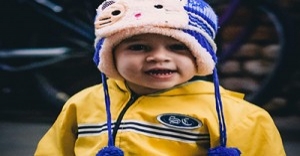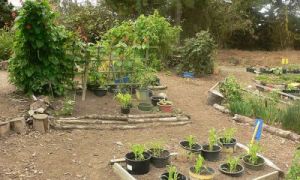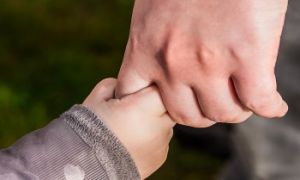

Becoming an effective leader in early childhood education requires mastering a blend of communication, organizational, and relationship-building skills. Here’s how educational leaders can develop and enhance their leadership abilities.
Reflective practice is essential for continuous growth in early childhood education. As a leader, fostering a culture of self-reflection helps educators refine their teaching methods, identify strengths, and enhance their impact on children’s learning experiences. Here's how to lead reflective practices effectively and an example of reflective practice in action.
Engaging families in early learning is crucial for fostering a collaborative environment that supports children's development. Here are some practical strategies on how to get families involved in their child's learning.
Building positive relationships with families is essential, and simple, thoughtful greetings go a long way in creating a welcoming environment. The following article provides tips for educators on how they can approach drop-offs and pick-ups effectively.
Providing constructive feedback is an essential skill for fostering growth, trust, and improvement. Here’s a structured guide to help you deliver feedback effectively.
The following article provides a list of Professional Development Goals that can be implemented to develop team collaboration and cohesiveness, effective conflict resolution, Success Measures, Workshop Topic Ideas and more.
Promoting the NSW Child Safe Standards involves embedding safety into every aspect of an organization or setting. The following article provides practical strategies tailored to each standard.
Fostering independence in children is one of the greatest gifts we can give them. A small but impactful step in this journey is encouraging children to walk into the center on their own each day. This simple practice not only builds confidence but also helps children view themselves as capable and competent. The following article provides information on Why Walking Matters, Strategies To Encourage Children To Walk Into The Service On Their Own, Practically Implementing The Strategies, Encouraging Parents To Support Their Child To Walk Into The Service Independently, and more.
There are a significant number of educators undertaking study to gain formal qualifications. There is also a need for educators in the early childhood workforce, who are undertaking study, to feel supported to strive to achieve their career goals and remain in the workforce. Leading Learning Circles for Educators Engaged in Study is designed to assist pedagogical leaders in supporting educators in their service who are undertaking study. The following article provides information on What Is Leading Learning Circles for Educators Engaged in Study, How Does This Helps Educators Who Are Studying, How To Get Started, Roadmap To Get Started, Reflective Questions, Examples Of Connecting Theory To Practice and Leading Learning Circles for Educators Engaged in Study Resource.
Loose parts are open-ended materials that children can move, manipulate, stack, and combine in countless ways during play. They can be natural, recycled, or everyday items and encourage children to develop fine motor skills, critical thinking, and social interaction. The following article provides a list of Loose Parts Materials for Babies, Toddlers, and Preschoolers, Loose Parts Materials Based On Themes, How To Set Up Loose Parts Materials and more.
 As an Educator in Australia, your pay rate falls under the Children’s Services Award 2010. This award states the minimum amount that an employer can… Read More
As an Educator in Australia, your pay rate falls under the Children’s Services Award 2010. This award states the minimum amount that an employer can… Read More
 When working as a qualified Early Childhood Teacher (with a university degree) within a service, your rate of pay will come from the Educational Services… Read More
When working as a qualified Early Childhood Teacher (with a university degree) within a service, your rate of pay will come from the Educational Services… Read More
 When working as a Diploma Qualified Educator your pay rate is from the Children's Services Award 2010. This Award states your minimum rate of pay… Read More
When working as a Diploma Qualified Educator your pay rate is from the Children's Services Award 2010. This Award states your minimum rate of pay… Read More
 When working as a Cert 3 Qualified Educator, your pay rate is from the Children's Services Award 2010. This Award states your minimum rate of… Read More
When working as a Cert 3 Qualified Educator, your pay rate is from the Children's Services Award 2010. This Award states your minimum rate of… Read More
 Educational Leaders play a crucial role in their early childhood service by ensuring that the educational program aligns with best practices and supports the holistic… Read More
Educational Leaders play a crucial role in their early childhood service by ensuring that the educational program aligns with best practices and supports the holistic… Read More
 In early childhood education and care, ratios are more than a technicality—they are a frontline safeguard. Every child deserves responsive supervision, emotional connection, and developmental… Read More
In early childhood education and care, ratios are more than a technicality—they are a frontline safeguard. Every child deserves responsive supervision, emotional connection, and developmental… Read More
 With the new national child safety reforms kicking in on 1 September 2025, early childhood services like yours have a real opportunity to lead the… Read More
With the new national child safety reforms kicking in on 1 September 2025, early childhood services like yours have a real opportunity to lead the… Read More
 Here’s a comprehensive Mobile Phone and Smart Watch Policy tailored for early childhood education and care (ECEC) services in Australia, aligned with the latest 2025… Read More
Here’s a comprehensive Mobile Phone and Smart Watch Policy tailored for early childhood education and care (ECEC) services in Australia, aligned with the latest 2025… Read More
 The Sea of Fish Challenge is a national initiative that invites children, educators, families, and communities to create and display fish artworks as a symbol… Read More
The Sea of Fish Challenge is a national initiative that invites children, educators, families, and communities to create and display fish artworks as a symbol… Read More
 Cold weather play is incredibly beneficial for early childhood development! It helps children build resilience, strengthen their immune systems, and develop essential motor skills. Here’s… Read More
Cold weather play is incredibly beneficial for early childhood development! It helps children build resilience, strengthen their immune systems, and develop essential motor skills. Here’s… Read More

Sustainability in early childhood education is an important part of the curriculum and should be...
See more...
The Child Safe Standards recommended by the Royal Commission provide a framework for making organisations...
See more...
EYLF Learning Outcome 5 focuses on effective communication, helping children develop verbal and non-verbal skills...
See more...© 2009-2025 Aussie Childcare Network Pty Ltd. All Rights Reserved.

